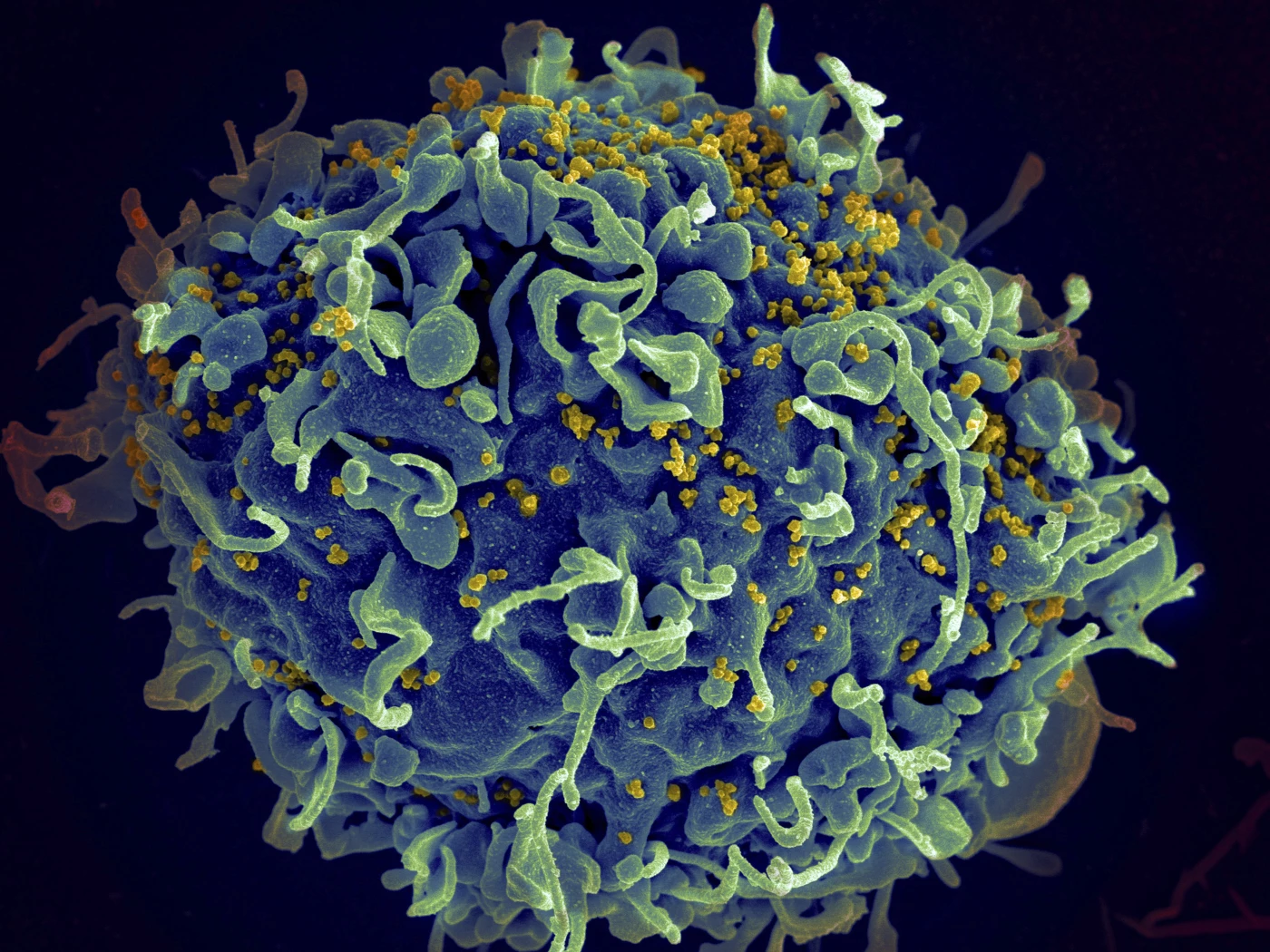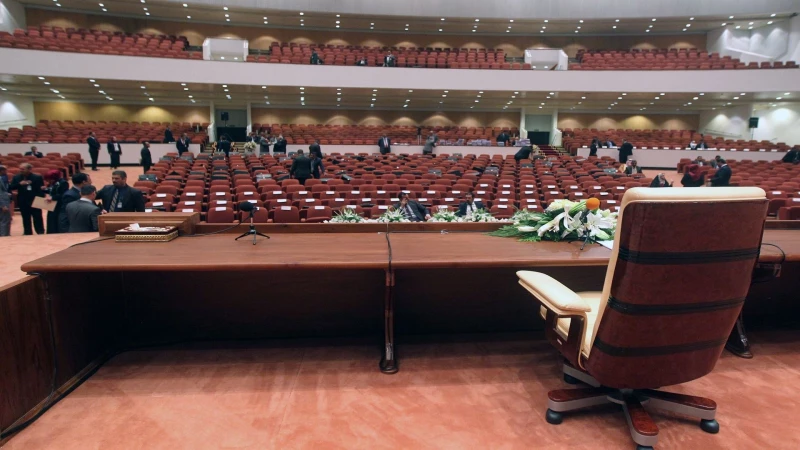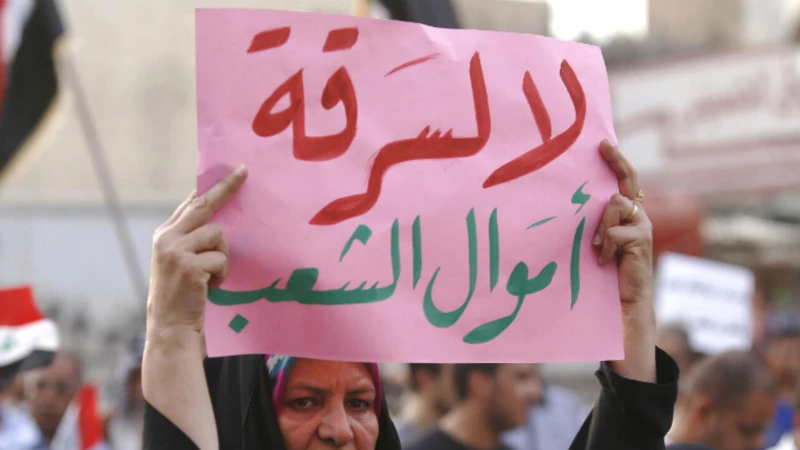ERBIL, Kurdistan Region of Iraq - In Dhi Qar province in southern Iraq, HIV (the virus that causes AIDS) cases are increasing. This has caused concern among health officials, worrying that societal “shame and denial” will impede health efforts to curtail the spread.
According to a medical source, the province has recorded about 200 confirmed HIV cases so far. But there may be many more cases that are still hidden, as people avoid taking voluntary tests. Some are afraid of being judged by society, and others don’t know appreciate the seriousness of the disease.
Dhi Qar has more than 2.38 million people and is the fourth most populated province in Iraq, being known for its tribal traditions and customs. Experts say these traditions can make it harder to raise health awareness, especially for diseases connected to behaviors that society sees as “forbidden” or “shameful.”
HIV is one of the most dangerous viruses. It attacks the immune system and weakens the body’s ability to fight infections. This puts people at risk for many other health problems. Although modern medicine allows people to live with the virus, early detection is still the most important way to stop it from spreading, according to experts.
The first HIV cases in Iraq were recorded in 1986, says researcher Baha Issa. This happened when Iraq imported a blood-clotting medicine (Factor VIII) for patients with hemophilia. Later, it was discovered that the medicine was contaminated with the virus, which caused the disease to spread among some patients. After that, the Ministry of Health created the National AIDS Control Program.
But after 2003, when Iraq opened its borders and more people traveled abroad, HIV cases started to rise. Statistics from the Central Statistical Organization show that in 2018, Iraq had 111 recorded cases, 4 of them in Dhi Qar (2 men and 2 women). By 2022, the number of cases in Iraq rose to over 430. Dhi Qar had 29 cases that year (22 men and 7 women). This means that Iraq saw more than 300 new cases in just four years.
In 2022, Dhi Qar was the province with the third-highest rate of HIV cases in Iraq, after Baghdad and Basra, according to experts.
This rise in numbers presents a significant challenge for health and social organizations. It’s not only about raising medical awareness but also about breaking the fear and silence around the disease. Experts say the most important step is to spread the culture of voluntary testing and to use calm, helpful health messages that take the disease out of the “shame zone” and into the area of “prevention and treatment.”
A medical source in Dhi Qar’s Health Department told The New Region that a large number of cumulative HIV cases have been recorded in the province up to now. The source said, “About 70% of these infections come from illegal sexual relationships, often due to travel to nearby countries.”
The source also said that “prevention starts with early health education, especially in schools.” He called for more awareness about HIV to be added to school curriculums. The Ministry of Health has been working on this since 2017 and 2018, when HIV topics were added to health education plans.
He added that the ministry has provided advanced HIV testing machines, which were sent to several health centers. These include blood banks, pre-surgery units, maternity clinics, and voluntary testing centers. Recently, HIV testing was also made a part of the requirements to get a driver’s license. This step is meant to increase early detection of the virus.
Despite these efforts, the source said that “doing field testing in neighborhoods is very hard, because the disease carries a strong social stigma. That makes people unwilling to accept voluntary testing or to ask for these health services.”
When it comes to who is infected, the source explained that “men make up more than 60% of all cases. Most are between 40 and 50 years old. There are fewer infections among younger people.”
He stressed the importance of continuing awareness campaigns and promoting safe, voluntary testing. At the same time, he said that people need to stop viewing HIV as a shameful disease, because this attitude is one of the biggest problems in controlling it.
Meanwhile, in a previous press statement, Majid Shankali, head of the Parliamentary Committee on Health and Environment, said that Iraq has recorded 2,638 HIV cases in past years, including 470 deaths. He said these numbers are still lower than global levels.
He also noted that there are rare cases where babies get HIV from their mothers during birth or through blood transfusions. He added that in the last three months, there have been no new recorded cases involving this manner of transmission.
Dr. Sadiq al-Mousawi, a public health expert in Dhi Qar, told The New Region that “people with HIV can live normal and safe lives if they take their medicine regularly and get tested often to check the virus level in their blood.”
He explained that the treatment available today helps control the virus effectively. That means the infected person won’t pass the virus to others during normal life, whether in marriage or social settings, as long as they don’t skip treatment.
He also said that patients should always tell doctors if they are having surgery or plan to donate blood. This helps the medical team take safety steps and protect themselves.
Mousawi said Dhi Qar has seven official voluntary testing centers across different districts. These centers offer tests in a very private and respectful way. This helps protect people’s privacy and encourages early detection and voluntary testing.
In the same area of work, Ali al-Nashi, a leader at the Communication and Brotherhood Humanitarian Organization, which handles health awareness campaigns, warned that HIV is spreading more, especially among young people. He called for more community education and urged people to stop being silent about the disease, which is becoming a serious health threat in some parts of the country.
Nashi said HIV “is not a disease that should carry shame; it’s a matter of responsibility, prevention, and education.” He encouraged people to help spread awareness in their communities and to practice safe behaviors. He also said that HIV should not be faced with fear or rejection, but with knowledge, openness, and working together.
He confirmed that “prevention starts with early health education, voluntary testing, and open discussions in the community.” He added that “working together, between health agencies, civil society groups, and the media, is the only way to stop HIV from spreading and to keep it under control.”


 Facebook
Facebook
 LinkedIn
LinkedIn
 Telegram
Telegram
 X
X



